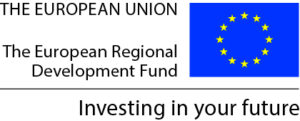
Better hand hygiene
Better hand hygiene in rural areas and refugee camps
The goal of this project is to develop a concrete solution that can help improve hand hygiene in rural areas, schools, and refugee camps, where there is limited sanitary infrastructure.
It is estimated that around 88% of diarrhea-related deaths worldwide are due to an insecure water supply, insufficient sanitation, and hygiene. An average of 1400 death of children under the age of five years occurs every day. This number is more than AIDS, malaria, and measles together. Over the last 20 years, most of the water, sanitation, and hygiene interventions set up in low-income countries have been able to reduce the fecal-oral transmission of pathogens, and consequently, the occurrence of diarrheal diseases.
Handwashing can prevent approximately 30% of diarrhea-related diseases and 20% of respiratory infections e.g., colds. Improvements in WASH at schools have proven to reduce other hygiene-related diseases and infections.
Based on a feasibility study, this project plans to:
- Develop a prototype of a practical solution that can help improve hygiene, especially in connection with toilet visits.
- Base the solution on dialogues with users (users’ point of view), health science results, and experiences
- Design a solution with a simple, durable, intuitive function, and appearance.
- Test the solution with prototypes at selected locations and ensure structured feedback from users.
- In collaboration with the users and its networks (including Medair and IUG) develop materials for children that can inspire and encourage them to utilize the solutions.
This is a PIVØ-project (Partnershipdriven innovation for emerging markets in East Africa”), supported by The European Regional Development Fund.
Partners

Sådan får du støtte og sparring helt frem til succes på de afrikanske vækstmarkeder
